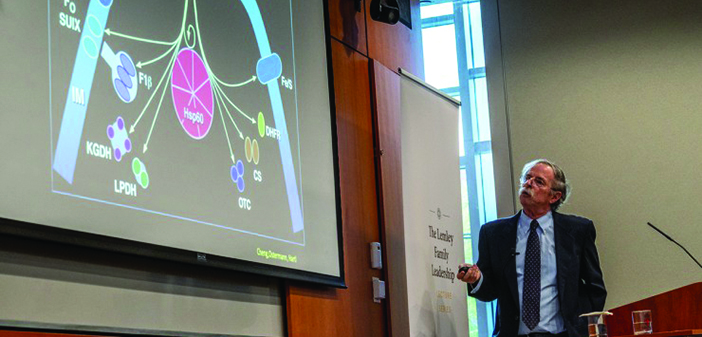In celebration of 50 Years of Medicine, Arthur Horwich ’72 MD’75 recalls how Brown sparked his lifelong love of scientific research.
In 1973, classes for Brown University’s newly formed medical school were held in the basement of the Biomedical Center, behind an imposing, windowless metal door—not the most welcoming or comfortable of environments. But for Arthur Horwich ’72 MD’75, a member of that inaugural cohort of aspiring physicians, there was nowhere else he’d rather be.
“We would go through that door every day and receive incredible lectures,” Horwich said. “The basic science faculty and clinical experts from the hospitals brought real medical physiology in the form of problems and patients and really gave us their all.”
“Problems and patients” aptly describes factors that have motivated Horwich ever since. He is a pediatrician and geneticist whose desire to apply clinical science to children’s health has led to groundbreaking discoveries that may one day influence treatment of diseases including Alzheimer’s, Parkinson’s, and ALS.
In a return visit to Brown on Wednesday, May 3, Horwich traced his educational path in parallel with the intellectual path that led him to the discoveries for which he is known. He spoke in a room packed with scientists in the Sidney E. Frank Hall for Life Sciences as part of the Lemley Family Leadership Lecture Series, which brings accomplished leaders from a range of fields to campus to engage and inspire the University community.
This semester’s Lemley Lecture was offered in partnership with The Warren Alpert Medical School as part of a celebration of Brown’s 50 years of impact in medical education and research, the contributions of alumni and faculty in Rhode Island and around the world, and the school’s promising future ahead.
Looking back at his 50-year journey from medical school, Horwich shared a range of insights.
“You have to work on something that captures you … and not be afraid to make changes of direction to be doing something you really want to do,” said Horwich, who is a professor of genetics and pediatrics at the Yale School of Medicine.




